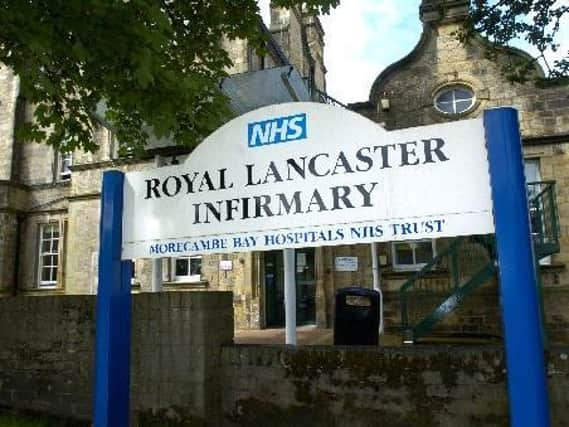July death toll in Lancaster below usual levels


But despite a national dip in deaths, doctors warn the NHS must be given whatever it needs to deal with a "triple whammy" threat of rising cases, winter pressure, and huge patient backlogs.
Office for National Statistics figures show 118 deaths were recorded in Lancaster during July.
Advertisement
Hide AdAdvertisement
Hide AdThat was five fewer than the number recorded in July 2019, a drop of 4%.
It was the same story across Lancashire as a whole, with the death count falling slightly, from 1,084 to 970.
The figures still mean there were 56 (6%) more deaths in Lancaster in the year to the end of July than at the same point last year.
Across England and Wales, there were 40,731 deaths recorded in July, lower than the 42,192 seen a year earlier.
Advertisement
Hide AdAdvertisement
Hide AdThat was the first time deaths had dropped below last year's level since the start of the pandemic in March.
Overall, 374,013 deaths were recorded between January and the end of July, an increase of 61,179 on the same point in 2019.
The British Medical Association said it was difficult to draw conclusions from the drop in deaths in July.
But its chairman, Dr Chaand Nagpaul, speaking at the group's annual conference on September 15, said it was "imperative" the Government give the NHS the resources it needs to deal with a "triple whammy of the non-Covid backlog, the ongoing risk of a second spike, and winter pressure".
Advertisement
Hide AdAdvertisement
Hide AdA poll of more than 8,000 English doctors and medical students by the BMA found 86% believe a second coronavirus spike is imminent in the next six months, with a peak during winter their number one concern for the health service.
Dr Nagpaul said an overstretched NHS had lacked capacity at the start of the pandemic, leaving millions of patients to become "collateral damage" as services were halted.
He said: “The pandemic was a shock to the world, but as coronavirus reached our shores, our overstretched NHS already had record waits for operations, cancer treatments and GP appointments. We had 10,000 unfilled doctor vacancies, and only a quarter of Germany’s critical care beds.
"This lack of capacity forced the NHS to halt so many services during the pandemic. For over three months we didn’t have a National Health Service but primarily a national Covid service.
Advertisement
Hide AdAdvertisement
Hide Ad“This hidden impact of the pandemic in part explains the tragic levels of excess mortality in the UK with an estimated 12,000 of these deaths being attributed to non-Covid causes."
A government spokeswoman said: “We have made significant strides in stopping the spread of coronavirus – this includes delivering 3.3 billion items of PPE to the front line with 31 billion items ordered, NHS Test and Trace testing hundreds of thousands of people every day, and almost 360,000 people contacted who may have been unwittingly spreading the virus.
She added the Prime Minister had announced a further £3 billion of winter funding to relieve winter pressure on the NHS.